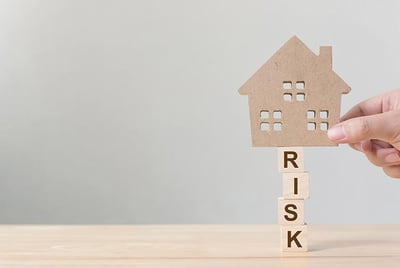Is the Down Payment on an Investment Property Tax Deductible?

Some may argue that the down payment on an investment property is tax deductible. If an investor puts down $50,000 and wants to write that off as a business expense, what’s stopping her. The IRS is very clear on this — you can’t deduct an expense with a multi-year useful life in the same year the expense is incurred.
How to Buy an Investment Property with a Partner

Buying an investment property with a partner might include anything from personality conflicts and strains on relationships to the positives of distributing workload and the combination of resources.
Form 8824 - Section III Explanation

Form 8824 is the part of an investor’s tax return that contains 1031 exchange transaction information. Section III of the form determines the net results of the transaction (gain or loss). This section is the 1031 exchange transaction and how the IRS receives information about the transaction’s gain or loss for tax reasons.
How to Value Multifamily Properties

Finding the value of multifamily investment properties is different than looking at the value of other types of real estate, simply for the fact that you will likely be renting to several tenants, and will have the upkeep of multiple units.
How to Report Opportunity Zone Deferral

If you’ve been paying attention to our blogs, you know that we’ve been writing a great deal about the Qualified Opportunity Zone (QOZ) program. This program allows you to take the capital gains earned from the sale of assets, and redirect those gains toward a Qualified Opportunity Fund (QOF). The result, for you, is a deferral of taxes on those profits.
What is Entitlement Risk?

Entitlement risk is often associated with new development, but it also occurs with property conversions. It can present a number of surprises and can be a very time-consuming process. When entitlement risks are involved, there’s no guarantee that a project will even be successful. In this article, we’ll go over what entitlement risk is and the challenges that it presents to real estate investors.
What is the Capital Gains Tax on Rental Property, and When Do You Pay It?

Along with the potential benefits of rental property ownership, is one downside. This involves annual taxes owed to the IRS, and encompasses both the rental income you might earn during your time of ownership, and the profit resulting from the sale of that property -- also known as capital gains.
Who Uses Portfolio Management?

Accredited investors and other high-net-worth individuals often use professional money managers to help them build diversified portfolios that not only meet their tolerance for risk but also can withstand cyclical downturns in the economy.
What Types of Loans Can Be Used for Investment Properties?

Investing in real estate has the potential for long-term earnings, and while some people have the capital to pay cash for a property, many need to get a loan to purchase an investment property.
How to Calculate Property Value Based On Rental Income

Knowing the value of a property you are considering for purchase is critical. Accurate information helps you understand how much to pay for an asset that you want, enables you to avoid overpaying, and assists you in identifying an opportunity. There are several methods of valuing property:


